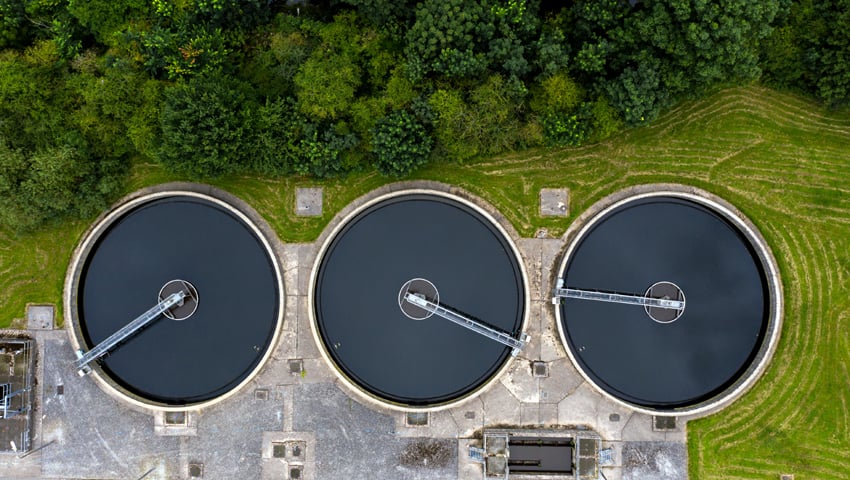Environmental campaign group Fighting Dirty has been granted permission for a High Court hearing to challenge the Environment Agency (EA) over its decision to axe a commitment to have sewage sludge tested for microplastics and forever chemicals before it is spread on agricultural land as fertiliser.
A report commissioned by the Environment Agency (EA) in 2017 found English crops were contaminated with dangerous organic contaminants including dioxins, furans, and polycyclic aromatic hydrocarbons at “levels that may present a risk to human health” and physical contaminants including plastics that could result in “soils becoming unsuitable for agriculture”.
In light of those findings, in 2020 the EA acknowledged that the ‘do nothing’ option was not acceptable and committed to bringing the testing and regulation of sewage sludge from water treatment plants and septic tanks into the Environmental Permitting Regime by 2023. The measure would require all sewage sludge to be tested for microplastics and forever chemicals before being sold to farmers by water companies for use as fertiliser.
However, by July 2023 an updated EA strategy abandoned the commitment to achieve legislative change by the 2023 deadline and failed to replace it with an alternative date, thereby reverting to a ‘do-nothing’ position.
Now there is no timetable in place to enforce the removal of harmful chemicals from the 3.5 million tonnes of sludge that is spread on UK agricultural land as fertiliser every year.
Fighting Dirty has now been granted permission for judicial review of the EA’s decision to remove the deadline for action and will argue in court that the body failed to consider mandatory relevant factors and to make sufficient inquiries, and that its decision not to replace the target date is irrational.
Georgia Elliott-Smith from Fighting Dirty said, “As an environmental professional, I know strong regulation is the key to directing investment and innovation towards tackling pollution. British industry is struggling with the government’s lack of direction, weak and contradictory regulations, under-investment, and a constant state of uncertainty. By bringing this legal action, we are simply asking the Environment Agency and Defra to deliver on what they promised several years ago and implement an effective, timely permitting regime that prevents harm to human and environmental health.”
Steve Hynd, Policy Manager at not-for-profit City to Sea added, “Today is a huge step towards regulating a major source of pollution, microplastics and toxic chemicals. The idea that we have been knowingly spreading this poisonous cocktail directly onto farmland without regulation or control is horrifying. It represents a serious dereliction of duty from those who are meant to be regulating this sector. To set a date to fix this and then to stick to that timeframe should be understood to be the very minimum of response to such an environmental disaster. Once again, we are chasing for the very minimum environmental regulation to be in place and enforced.”
Leigh Day solicitor Julia Eriksen, who is representing Fighting Dirty in the High Court, said: “The EA has known about the dangerous level of contamination that exists in sludge since 2017 and has acknowledged that doing nothing is not an acceptable option. In these circumstances, it is arguably irrational for the EA not to replace the target date.”
The judicial review hearing has been listed to be heard on Tuesday 9 July at the Royal Courts of Justice.
